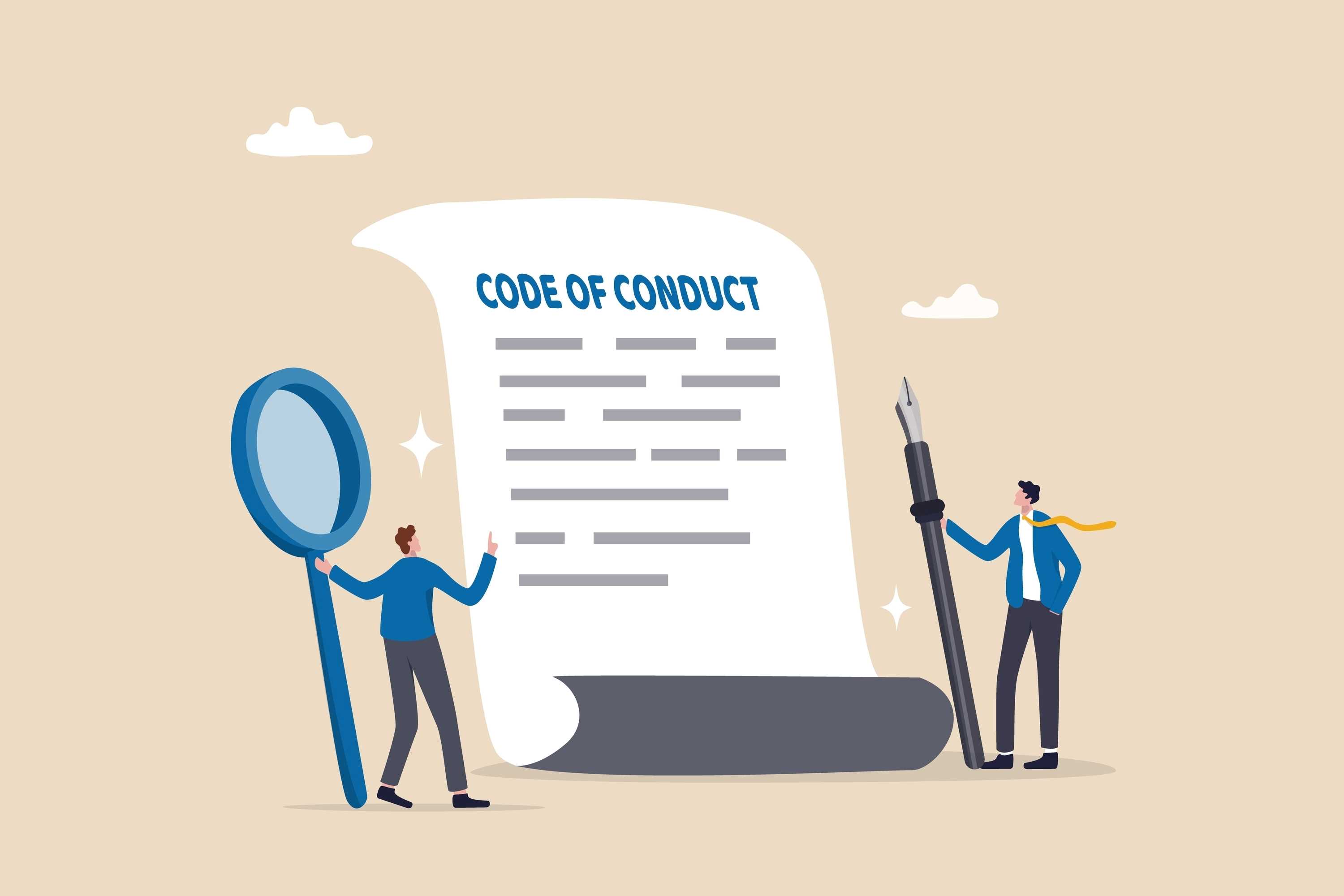In this guide we consider the franchise disclosure document, the importance of franchise disclosure document compliance, and best practices to ensure compliance as a franchisor in Australia.
The Importance of Franchise Disclosure Documents
Key Components of Franchise Disclosure Documents
Common Disclosure Document Issues for Australian Franchisors
Best Practices for Franchise Disclosure Document Management
The Importance of Franchise Disclosure Documents
A franchise disclosure document provides valuable information to prospective franchisees, helping them to make an informed decision before entering into a franchise agreement [What is a franchise agreement?].
As an Australian franchisor, you are required to create a disclosure document and a Key Facts Sheet (which provides a summary of some of the information contained in a franchise disclosure document) [What is a Key Facts Sheet?]. Your disclosure document and Key Facts Sheet must be updated each year within 4 months after the end of the financial year (generally 31 October).
If a franchisor fails to comply with the obligation to update its disclosure document, it may be subject to significant penalties under the Franchising Code of Conduct (the Franchising Code) [Penalties if Disclosure Documents do not Comply].
A disclosure document and a Key Facts Sheet must be provided to a prospective franchisee at least 14 days before the prospective franchisee enters into a franchise agreement or makes a non-refundable payment.
In addition to a disclosure document and a Key Facts Sheet, a prospective franchisee must also be provided with a copy of the franchise agreement in the form in which it is to be executed, together with a copy of the Franchising Code.
If a franchisor fails to provide a prospective franchisee with the documents required by the Franchising Code, it may also be subject to significant penalties under the Franchising Code.
Key Components of Franchise Disclosure Documents
A disclosure document is prescriptive, which means that it must be in the form of Schedule 1 to the Franchising Code, and contain the information required by the Franchising Code [What is the Franchising Code of Conduct?], including:
1. Franchisor's Background: This section provides details about the franchisor's history, experience, and background. It includes information about the franchisor's key personnel, their qualifications, and any previous business experience. In addition, the franchisor is required to provide details about certain types of litigation and the percentage of franchisee's who were party to a dispute resolution process in the previous financial year.
- Item 2 - Franchisor details
- Item 3 - Business experience
- Item 4 - Litigation
- Item 5 - Payments to agents
2. Franchisees: This section provides details about the franchisor's current franchisees, the franchisees who are no longer in the franchise system and the reason why they left.
- Item 6 - Existing Franchisees
3. Franchise System: Here, franchisors outline the key features of their franchise system, including whether the system is a sub-franchise or master franchise, the trademarks, intellectual property, and site or territory selection. Information about the particular site or territory of the franchise is provided in a separate document with the disclosure document.
- Item 7 - Master franchises
- Item 8 - Intellectual Property
- Item 9 - Franchise site or territory
- Item 13 - Sites or Territories
4. Supply Information: Most franchise systems require franchisees to purchase goods or services from the franchisor or from approved third parties. This section provides information about the supply of goods or services to franchisees. Importantly, this section also requires the franchisor to include detailed information about any rebates received from suppliers and whether those rebates are shared with the franchisees.
- Item 10 - Supply of goods or services to a franchisee
- Item 11 - Supply of goods or services by a franchisee
- Item 12 - Supply of goods or services - online sales
5. Financial Information: Franchisees need access to accurate financial information to evaluate the viability of the franchise opportunity. The disclosure document includes details about the initial investment, ongoing fees, royalties, and other financial obligations.
In addition the disclosure document includes detailed information about the marketing fund, including the percentage spent on production, marketing, administration and other expenses in the previous financial year [Franchise Marketing Fund Obligations].
Any earnings information that is provided to a prospective franchisee must also be provided in the disclosure document or as an attachment to the disclosure document and must comply with Item 20.
Further, the franchisor must include in the disclosure document, financial reports of the franchisor for the last 2 financial years. If the franchisor has not existed for 2 or more financial years, the franchisor must include a statutory declaration of the franchisor's solvency and an independent audit report.
- Item 14 - Other Payments
- Item 15 - Marketing or other cooperative funds
- Item 16 - Financing
- Item 20 - Earnings Information
- Item 21 - Financial Details
6. Legal Obligations: This section covers the legal aspects of the franchise agreement, including variation of the franchise agreement, renewal and termination rights and dispute resolution processes.
- Item 17 - Unilateral Variation of franchise agreement
- Item 17A - Arbitration of Disputes
- Item 17B - Ways of ending the franchise agreement early
- Item 18 - Term of agreement and arrangements to apply at the end of the franchise agreement
- Item 19 - Amendment of franchise agreement on transfer of rights
7. Other Disclosures: A franchisor must include updates in the disclosure document in respect of any information referred to in clause 17 of the Franchising Code of Conduct that has been updated between the date of the disclosure document and the date that the disclosure document is provided to the prospective franchisee.
- Item 22 - Updates
Common Disclosure Document Compliance Issues for Australian Franchisors
Some common disclosure document compliance issues can arise for Australian franchisors. These issues include:
1. Incomplete Information: Franchisors must provide accurate and up-to-date information in their disclosure documents. Incomplete information is often provided under Item 10 - Supply of Goods or Services.
The ACCC in its Franchising Model Disclosure Document provides that the names of suppliers and specific types of goods and services should be disclosed under Item 10 - Supply of Good or Services. The disclosure of general information is not sufficient.
Additionally, the ACCC provides that the details of the types of goods and services subject to rebates for each supplier are required to be provided (rather than just the overall rebate). This may be difficult to calculate, depending on the rebate information received from the supplier.
2. Failure to Provide Updated Information Required by Item 22 of the Disclosure Document:
Clause 17 of the Franchising Code of Conduct sets out a number of "materially relevant facts" that must be included in the disclosure document or notified to the prospective franchisee if the information changes after the disclosure document has been provided.
Clause 17(1) requires that a franchisor must provide any newly issued director solvency declaration, financial statement, or audit report to a prospective franchisee either with the disclosure document or separately (if the franchisee has already been provided with the disclosure document but has not entered into the franchise agreement).
Information relating to the events set out in clause 17(2) of the Franchising Code of Conduct must also be included in the disclosure document (or notified to a prospective franchisee if the information changes after the disclosure document has been provided). These events include occurrences such as a change in majority ownership of the franchisor, a transfer of intellectual property ownership, or any court judgments or proceedings, including those initiated by public agencies like the ACCC.
The civil penalty applicable for a failure to provide such information is the greatest of:
- $10,000,000.00;
- 3 times the value of the benefit that the franchisor or a related body corporate has obtained directly or indirectly and that is reasonably attributable to the contravention;
- 10% of the annual turnover of the franchisor during the period of 12 months ending at the end of the month in which the contravention occurred (if the value of the benefit cannot be determined).
3. Failure to Complete the Annual Update the Disclosure Document: Franchisors have an ongoing obligation to update their disclosure documents within 4 months of the end of the financial year (generally 31 October), unless the exception set out below applies.
A failure to update the disclosure document as required by the Franchising Code of Conduct can attract a civil penalty of up to 600 units or $187,800.00. Alternatively, the ACCC may issue an infringement notice which attracts a penalty of up to $18,780.00 [Infringement Notice Penalties].
In our experience, franchisors need to arrange for the financial reports of the franchisor to be completed soon after the end of the financial year in order to be able to complete the annual update on time. This is even more critical where the franchisor has existed for less than 2 years and consequently, the franchisor is required to have an audit completed.
A franchisor does not need to update the disclosure document in circumstances where;
- the franchisor did not enter into a franchise agreement, or only entered into 1 franchise agreement during the year; and
- the franchisor does not intend to enter into another franchise agreement in the following financial year.
4. Earnings Information: If earnings information is provided to a prospective franchisee before the prospective franchisee is provided with the disclosure document, the earnings information must be included in, or as an attachment to the disclosure document.
If earnings information is provided to a prospective franchisee after the prospective franchisee is provided with the disclosure document, then the franchisor is taken not to have given the franchisee the disclosure document and the franchisor must re-disclose (Clause 9A 4 of the Franchising Code of Conduct).
5. Significant Capital Expenditure: Franchisors must include details about any significant capital expenditure that may be required during the term of the franchise agreement in the disclosure document [Significant Capital Expenditure Requirements].
If a disclosure document discloses Significant Capital Expenditure, the following information must also be included in the disclosure document:
- the rationale for the expenditure;
- the amount, timing and nature of the expenditure;
- the anticipated outcomes and benefits of the expenditure; and
- the expected risks associated with the expenditure.
6. Marketing Fund Expenses: If a franchisor proposes to make payments from the marketing fund that cannot be described as "legitimate expenses for marketing", those expenses should be disclosed to the prospective franchisee in the disclosure document. Apart from the reasonable costs of administering the fund, legitimate marketing expenses and expenses that have been agreed to by a majority of franchisees, a franchisor cannot make payments from the marketing fund unless those payments have been disclosed in the disclosure document (even if the franchise agreement gives the franchisor the right to make the payments).
7. Lack of Record-Keeping: If a franchisor makes a statement or claim in the disclosure document and relies on a document to support the statement or claim, the franchisor must keep the document for at least 6 years.
Best Practices for Franchise Disclosure Document Management
To effectively manage Franchise Disclosure Documents and assist with compliance, franchisors can follow these best practices:
1. Seek Legal Advice: Engage a franchise lawyer to ensure your disclosure document complies with the Franchising Code and any other relevant legislation. Legal professionals can help you understand your obligations and draft a comprehensive disclosure document.
2. Maintain Accurate Financial Information: Regularly update your disclosure document with accurate financial information, including any changes to fees, royalties, or profit projections. This ensures that prospective franchisees have the most up-to-date financial data.
3. Implement Document Management Systems: Utilise document management systems to organise and maintain your disclosure document and related documents. These systems can help streamline the process of updating and distributing disclosure documents to prospective franchisees.
4. Maintain Detailed Franchisee Records: Ensure that you maintain accurate and detailed records of incoming and outgoing franchisees. For each outgoing franchisee, maintain records about why the franchisee left the system, this will assist you in completing the information required by Item 6.4 of the disclosure document.
5. Regularly Review: Review your disclosure document to ensure that any of the matters set out in Clause 17 of the Franchising Code are reflected in Item 22 of the disclosure document.
6. Diarise Important Dates: Diarise Key Franchise Dates to help automate the process of updating your disclosure document. Ensure that any consultants and advisers are aware of these Key Dates and understand the importance of compliance.
Takeaways
Compliance with the disclosure document requirements of the Franchising Code is crucial to successfully franchising a business in Australia.
Having a clear understanding of your disclosure document obligations as outlined in the Franchising Code and following best practices will help you to ensure that your disclosure document is compliant and that your team (including advisers and consultants) understands the importance of compliance.







